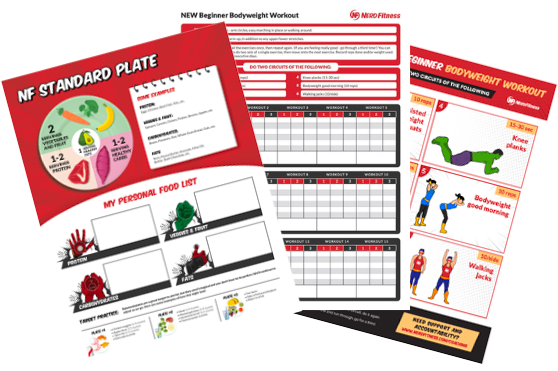
The day was May 6th, 1954, in Oxford, England.
A gentleman named Roger Bannister did the impossible: he ran a mile in 3 minutes and 59 seconds. For the nine years prior to this race, the world record had stood at 4:01, and it was widely considered that crossing that barrier was outside of human ability.
In just three years after Roger set this new record, an additional THIRTEEN people completed a mile in less than four minutes.
More recently, we saw the same big hullabaloo (what a great word) years ago when Tony Hawk first landed the 900 on a half-pipe. I remember watching this live and thinking it was the greatest thing I had ever seen. Since, then another 9 people have landed the trick.
It begs the question: Was there a sudden increase in ability during the 1950s when it came to running? Are skateboarders getting faster and finding better equipment?
Or, what if it’s something else?
Today I want to talk about self-imposed limits – our capacity to realize what’s possible instead of rationalizing what’s impossible.
Brains over brawn

What if I were to tell you that right now, you are physically capable of pushing yourself further and harder than what your brain is telling you.
In 2012, a group of trained cyclists were told to perform a 4k timed trial as quickly as possible, using “all out effort.” That was their only guidelines.
They were then invited back, and in the second trial, they raced a virtual avatar that went the same speed as their first timed trial. The average result for every cyclist was a full 1% faster than their first “all-out” effort.
They were then told to come back a third time, and raced their avatar again, which unbeknownst to them had been sped up to be slightly faster than their original time. Again, these cyclists beat the avatar, improving their “personal best” original time by 1.7%.
So, what’s going on here?
How did these subjects, who had previously expelled MASS-EFFORT suddenly find more “gas in the tank” and improve their time overnight?
Imagine you’re playing Mario Kart, and you’re racing against a ghost of your previous best effort. Not only now do you know exactly how fast you need to go to improve, but the visual cue is right in front of you, tempting you to push yourself beyond what you thought possible.
I learned all of this through Mark McClusky’s “Faster, Higher, Stronger.” I absolutely fell in love with the content on limitations, fatigue, emotions, and what our bodies are capable of.
For example, Tim Noakes, South African professor of exercise and sports science at the University of Cape Town, hypothesizes, it’s not our bodies that slow down, but rather our brains that control WHY and HOW our bodies slow down:
“Fatigue is an emotion, a construct in the mind that helps ensure that exercise is performed within the body’s ability. That emotion is affected by many factors, such as motivation, anger, fear, memories of past performance, self-belief, and what the body is telling the brain….our physical performance is regulated by the brain, not limited by our hearts, lungs, or muscles.”
Are we capable of more than we realize, and simply need it proven to us? Just as a planet full of runners suddenly realized, “hey, the 4 minute mile IS possible!” These cyclists are up against an avatar that constantly challenges them to go further and faster than they ever thought possible.
Even though they went ALL out, once they had a benchmark to base their own performance off of, they were able to go even further and push their effort beyond what they initially thought possible.
We see this story day after day on Nerd Fitness: Success Stories from people who have lost tremendous amounts of weight that said “I never thought I’d be doing handstands or rock climbing…and yet here I am.”
How are these everyday joes accomplishing and crushing their own limits, and is it the same reason that world class athletes set records and break through barriers?
How can we push our own limits?

I recently came across a fun quote on Imgur (NSFW: language) – that was incredibly thought provoking. Somebody asked how they can get themselves motivated to do more stuff or get things done, and the response was interesting:
“Better to cultivate discipline than to rely on motivation. force yourself to do things. force yourself to get up out of bed and practice. Force yourself to work. Motivation is fleeting and it’s easy to rely on because it requires no concentrated effort to get. Motivation comes to you, and you don’t have to chase after it.
Discipline is reliable, motivation is fleeting. The question isn’t how to keep yourself motivated. It’s how to train yourself to work without it.”
In a nutshell: If you are relying on yourself to “wait to get motivated” to work out, stop it! Stop whining! It’s better to build a system in which you don’t have to rely on motivation… build a system in which you get to race against (or lift against) an avatar that was you from last week. Don’t rely on inspiration; build a system for success – a system to break your own limits.
This quote also reminded me of the most successful people I know, or the people who seem to get more done in a month than most people get done in a life.
It’s not because these people are more “motivated” than others. It’s because they have built and expect the habit of greatness.
For example, take Cal Newport: computer science professor at Georgetown University, publisher of numerous papers, and author of four books. He gets more done in a day than most do in a week, and yet he stops work every day at 5:30 pm so he can spend time with his wife and family. How the heck does he get all of this done while also being a full-time professor?
By practicing the habit of greatness.
He plans out his entire week in advance, he makes distractions irrelevant, and doesn’t surf the web at work.
Is Cal more motivated than the rest of us to get things done, or does he have more willpower than mere mortals? Hell no! He just understands how habits are built, and then he’s spent years making these things automatic in his life.
It’s cliche, but Aristotle said it best: “We are what we repeatedly do. Excellence, then, is not an act, but a habit.” Cal simply practices the habit of excellence, carefully honed over years and years.
So what does this mean for people like us? It turns out we can trick ourselves into pushing farther than we think we’re capable of, and we can DO more things than we think we’re capable of. Like building a bat cave, instead of relying on willpower and motivation to get yourself to exercise or eat right…work smarter, not harder. Or by making the only comparison you can make – and using this avatar of past self to push you to the next level.
And sometimes we need people to push us, to challenge us, to drag us through things we don’t want to do until we realize that we’ve done it. You know, like Gandalf nudging Bilbo out the door. I bet Andy Dwyer from Parks and Recreation wouldn’t have completed this lap without the support of his friend Chris:
Just by surrounding yourself with better, more advanced people can hugely impact your own training. John Kessel, Director of sport development at USA volleyball, explains that a disproportionate number of their best players are younger siblings, because “The more you play against bigger kids, older kids, even adults, the better you become as an athlete.”
And sometimes, we need assistance (technology) to help us build these habits of excellence:
- Self-Control to block time-wasting websites on our computer.
- Rescue time to track our efficiency.
- Alarm clocks across the room.
- A freaking wrist-shock device when we miss our habits.
Notice that none of these examples above rely on motivation or willpower or just being better than somebody else. Instead, they all situations in which outside forces are employed to push us beyond our seemingly entrenched capabilities.
Don’t be outworked

I want to imagine what you’d accomplish if failure wasn’t an option. As McClusky theorizes in his book, especially when it comes to performance, competition, and victory: “the winner is the athlete for whom defeat is the least acceptable rationalization.” In other words, people who are willing to do anything to accomplish their goals almost always end up accomplishing their goals.
Or, in Will Smith’s own words: “I will not be outworked.” (h/t Derek)
“The only thing that I see that is distinctly different about me is I’m not afraid to die on a treadmill. I will not be out-worked, period. You might have more talent than me, you might be smarter than me, you might be sexier than me, you might be all of those things you got it on me in nine categories.
But if we get on the treadmill together, there’s two things: You’re getting off first, or I’m going to die. It’s really that simple, right?
Not surprisingly, Will Smith is one of the most successful actors out there today. Unfortunately, we’re all not like Will Smith (yet). At some point in our own quests, when we are not willing to make the sacrifices to succeed, we fall into the belief that accomplishing our goals is not possible.
In fact, this rationalization can and will happen for many people before they even try!
My goal with Nerd Fitness is to help you get from the point where you move from rationalizing “it’s not possible,” to “I wonder what am I capable of, and when can I get started!?” I want to help you get what you want out of life, whether it’s a flat stomach, bigger muscles, self-confidence, and/or a life of adventure.
In my 6 years of running Nerd Fitness, I’ve come to learn that happiness, greatness, and success are not things people are born with, entitled to, or lucked into.
They are habits and practices that have been built intelligently.
Instead of berating yourself when you’re not motivated to exercise, or getting mad at yourself when you struggle with eating unhealthy food, take a step back and look at it from a different angle:
“How can you build the habit of success and put your focus there, instead of chasing the motivation to make it happen?
It’s easy to become ensnared – to chase motivation and fail – or rationalize inaction and never try. Every single one of us has fallen into this trap. I’d love to hear about your experience with this, and how you plan to (or already have) overcome it.
-Steve
PS: Just wanted to mention Faster, Higher, Stronger again by Mark McClusky (editor of Wired.com). I read this book last week and had a fun chat with Mark who’s a really cool guy. If you’re a nerd about human performance and our capabilities, it’s a super interesting read.
###
photo pin: Anne Worner: The Art Critic, Khalid Al-khater: Silhouette, David Hawkins-Weeks: Marble, JD Hancock: Pinky & the Brain


